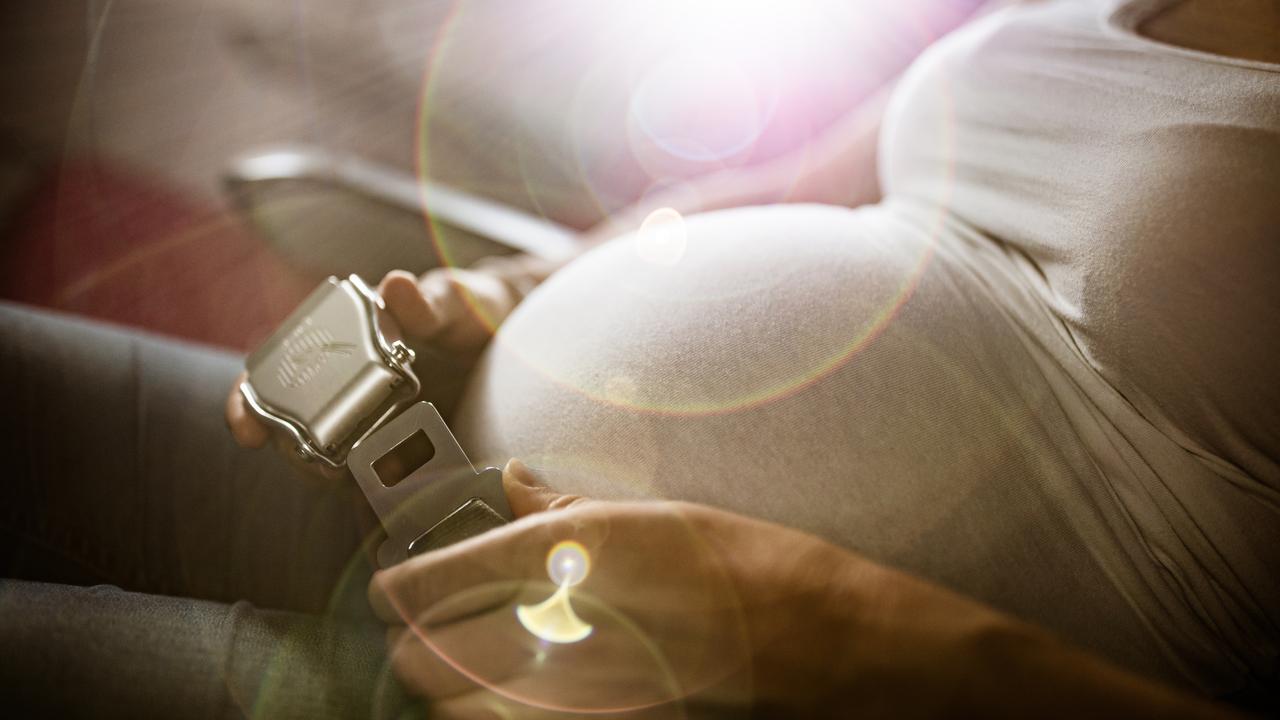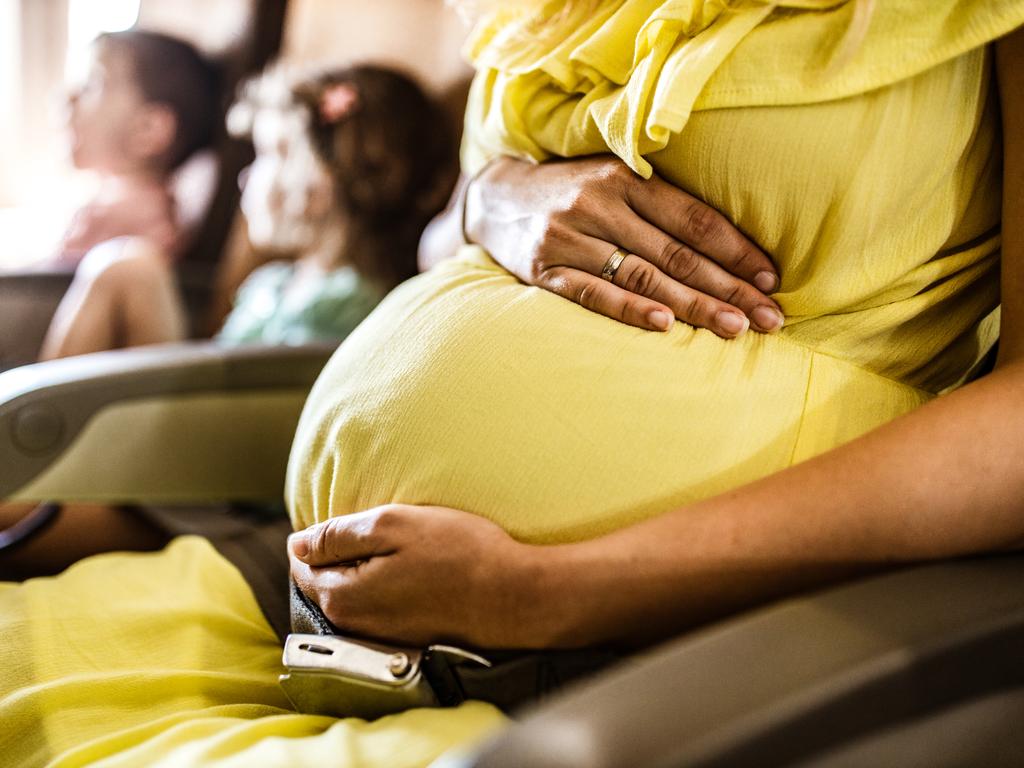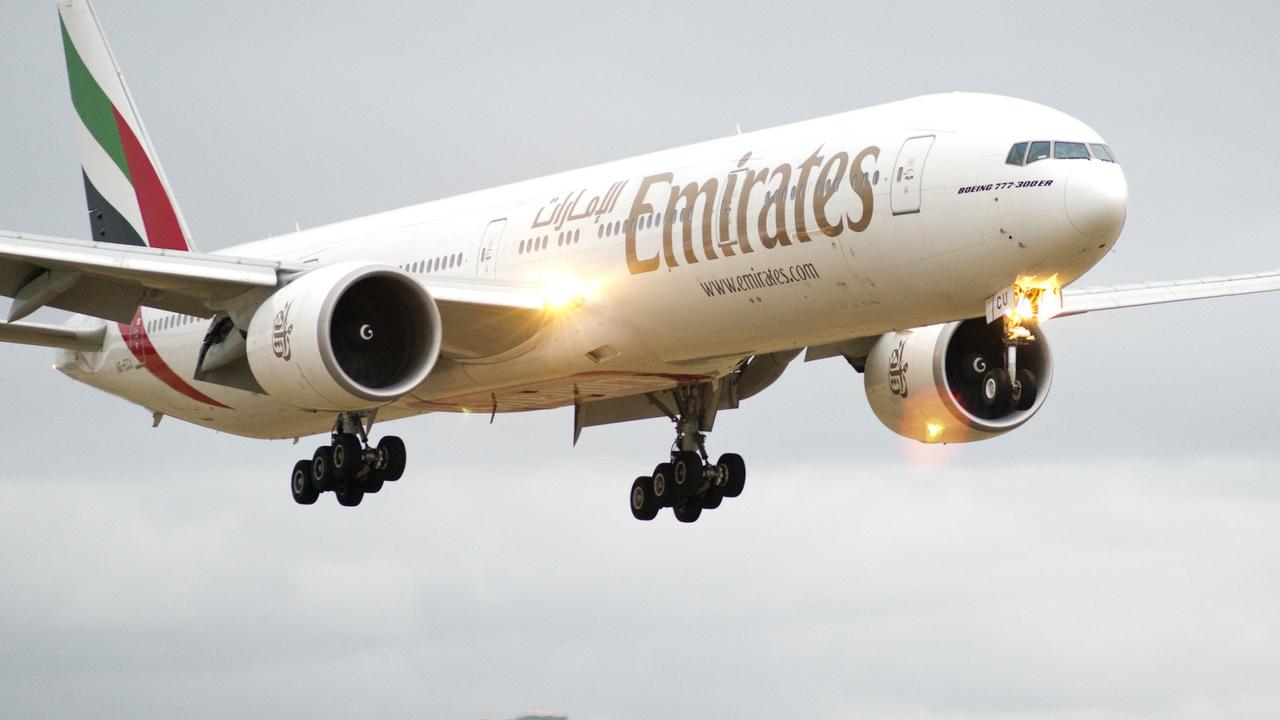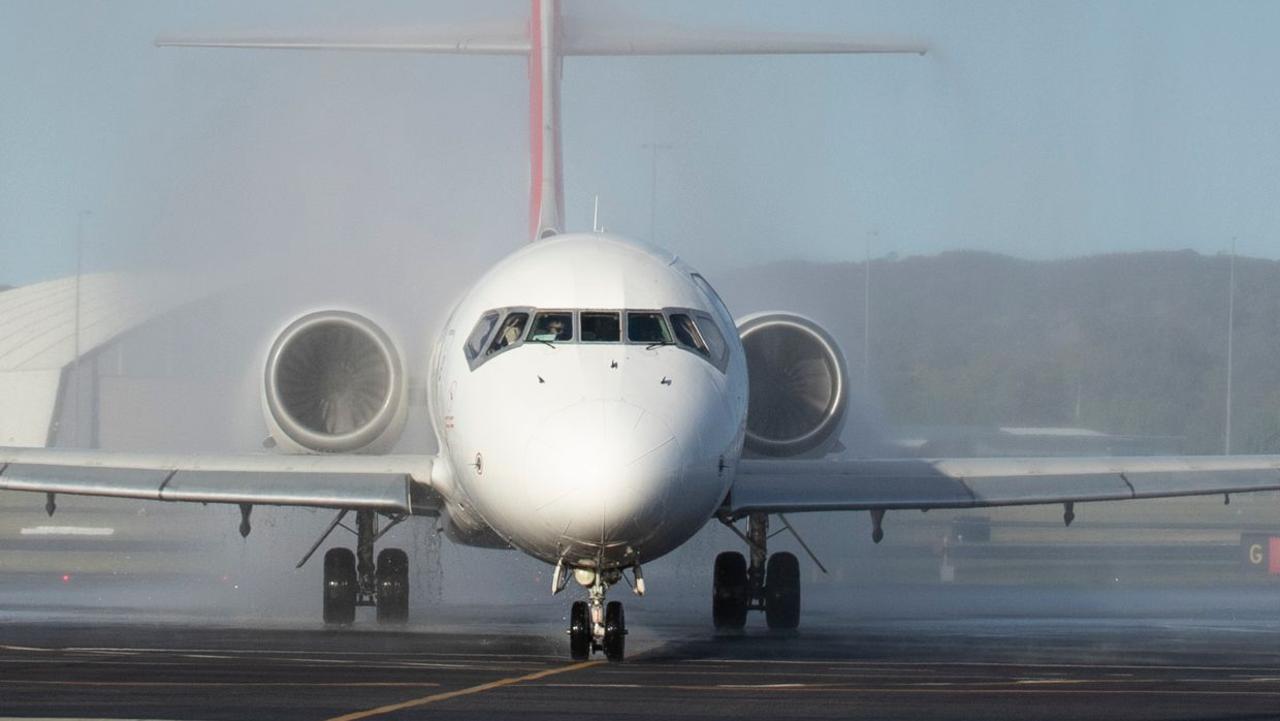What stages of pregnancy it’s not safe to fly in and why
Tammy Hembrow recently copped flak for flying while pregnant – but she did something all pregnant women should do before hopping on a flight.
Aussies are keener than ever to hop on a plane and start travelling now that boarders have opened.
Whether it be locally, or internationally, the desire to travel has never been so high following the pandemic – however, if you happen to be pregnant and are eager to go on that long-awaited trip but don’t know when it’s safe to do so, an expert has revealed the best time fly.
Speaking to news.com.au, Sydney-based certified nurse and integrative medicine practitioner Madeline Calfas said flying when you’re pregnant is absolutely fine, provided you have a non-eventful, low risk pregnancy – and have been given the all-clear.
“This means both you and bub have been given a clean bill of health by your obstetrician, gynaecologist or midwife,” Ms Calfas said.
“The second trimester is typically considered the safest time to fly during pregnancy as it tends to be when the most common risks and emergencies that can occur during pregnancy are the lowest.”
Ms Calfas’ advice comes after Aussie fitness influencer Tammy Hembrow was forced to defend herself after flying to the Maldives while 32 weeks pregnant, in April.
Want a streaming service dedicated to news? Flash lets you stream 25+ news channels in 1 place. New to Flash? Try 1 month free. Offer ends 31 October, 2022 >

The 27-year-old flew business class alongside her son Wolf, daughter Saskia and fiance Matt Poole, for her ‘babymoon’.
And while generally speaking, commercial air travel before week 36 of pregnancy is considered safe if you have a healthy pregnancy, some of Tammy’s 14.5 million followers deemed her decision “risky”.
“My midwife said it’s perfectly fine. Fit and healthy and so is bub,” Tammy responded.
“I’m only 32 weeks haha not about to have this baby on a plane.”
Tammy has since given birth to a baby girl, Poye Poole, in her home city of the Gold Coast.
Ms Calfas reiterated the importance of consulting with your doctor and/or pregnancy team before flying.
“Even if you are deemed a low-risk pregnancy, it is strongly recommended that you have a chat with your pregnancy team prior to booking any flights to make sure that it’s 100 per cent safe for you to do so,” she said.
“Also be sure to have a ‘worse-case scenario’ plan before you go.
“You don’t wait for it to happen as you will most likely not be thinking clearly should you find yourself in that situation.”

When pregnant women shouldn’t fly
Ms Calfas – who is a member of the Australian Health Practitioner Regulation Agency and International Nurses Association – explained it is generally advised not to fly if you have high blood pressure, pre-eclampsia, vaginal bleeding and an incompetent cervix.
“This is when your cervix has difficulty remaining closed during pregnancy, or other issues with the cervix,” she said.
Ms Calfas also added the same goes if you experience any issues that involve an abnormality of the placenta, a history of multiple miscarriage, a history of premature labour, gestational diabetes and if you are considered a ‘geriatric’ pregnancy and it’s your first pregnancy.
“This is when the mum is 35 years and over.”

Ms Calfas said you may be able to fly with a twin pregnancy, if it is early enough in the pregnancy and everything is textbook perfect.
However, those who are six weeks and are planning on flying may want to reconsider as Ms Calfas said the last six weeks had been known to trigger early labour.
“It’s also the most uncomfortable, especially in economy class. Airlines will often have their own policy in regards to flying while pregnant, and it can vary from airline to airline, so it’s super important to check their policy before you get to the airport,” she advised.
“Usually they allow pregnant passengers to fly up to 35 weeks (provided you have a low risk pregnancy).
“Over 35 weeks, some airlines will require a ‘Fit to Fly’ certificate from your doctor or midwife, while others won’t allow you to board the plane.”
Countries to avoid
Ms Calfas said given there were not a lot of vaccines that were safe to get while pregnant, except for influenza, Covid-19 and whooping cough, it was best to avoid countries that had vaccination entry requirements.
“These tend to be developing countries such as Africa, China, PNG and Indonesia to name a few, so best to give these countries a miss while you’re pregnant if you can,” she recommended.
“This also includes countries that carry a high risk of malaria or any other disease that may require treatment with strong medications that could be harmful to bubs if you have to take them.”

Be mindful of long flights
Ms Calfas said pregnant women should also be mindful of the distance they are travelling as it will determine how long you will be on the flight.
“The longer the flight duration, the greater the potential to develop a DVT (Deep Vein Thrombosis),” she said.
DVT is a blood clot that can form when you spend a long period of time with minimal movement.
“When you are pregnant, the risk is 2-3 times greater than when you are not,” Ms Calfas said.
“Making sure you get up and pace the isle frequently, do some leg exercise that can be done when seated (useful for when the duty free or meal trolley is blocking the isle) and invest in a pair of compression stockings to wear during the flight.”
She said to try and get an aisle seat as you will be frequenting the toilet a lot more.
“If possible consider upgrading to Premium Economy (or even the fancier seats if budget will allow) and take the aisle seat,” she said.
“Being pregnant tends to make you need to pee more due to increased water retention as well as bubs using your bladder as a trampoline, so if you combine your need to visit the bathroom with the need to get up and move, the aisle seat will stop you having to climb over your husband or some random stranger.”

Keep hydrated
“I know I just made mention of the need for a bathroom frequent flyer card, and logic would have you say to minimise how much you drink, but the pressure in the cabin, combined with the airconditioning and air purification is going to lead to you getting quite dehydrated,” Ms Calfas said.
“If this happens, not only will your skin feel blah, but you will (be) more likely to retain fluid. Dehydration also contributes to the development of DVTs and headaches/migraines.”
Ms Calfas, who is also a nutritionist, said it was important to take a stash of snacks on the flight with you.
“If you are prone to nausea when your blood sugar levels drop, or if you get airsick (or even have some morning sickness), being able to nosh on something will make the flight just that much more enjoyable,” she said.
“However, be sure to avoid anything that usually makes you gassy or bloated – when you are at altitude, any gasses that are in your digestive system will actually expand and that can actually make you quite uncomfortable.”






